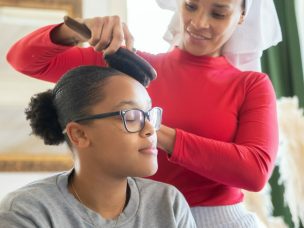Baricitinib is safe and effective for the treatment of severe alopecia areata as compared to placebo in two phase 3 randomized controlled trials.
Alopecia areata (AA) is an autoimmune condition that causes hair loss in different areas of the body, including eyelashes, scalp, and eyebrows. The treatment modalities for AA are limited. Baricitinib is an oral pharmacological substance that selectively and reversibly inhibits Janus kinase (JAK)-1 and JAK-2, thereby potentially interrupting the signaling of cytokines in AA pathogenesis.
This study, published in The New England Journal of Medicine, includes two randomized phase 3 trials: BRAVE-AA1 and BRAVE-AA2. The trials recruited individuals with severe AA, having a Severity of Alopecia Tool (SALT) score of ≥ 50. The score range spanned from 0, signifying no hair loss, to 100, indicating complete scalp hair loss. The patients were randomized in a ratio of 3:2:2 for the administration of baricitinib at 4 mg/day, baricitinib at 2 mg/day, or placebo. A SALT score of ≤ 20 at week 36 was the primary outcome of the study.
A total of 654 and 546 patients were included in the BRAVE-AA1 and BRAVE-AA2 trials, respectively. In the BRAVE-AA1 trial, 6.2% of patients in the placebo group, 38.8% in the 4 mg/day baricitinib group, and 22.8% in the 2 mg/day baricitinib group reported a SALT score of ≤ 20 at week 36. Similarly, in BRAVE-AA2 trials, 3.3%, 35.9%, and 19.4% reported this outcome, respectively. Secondary outcomes at a 4 mg/day dose of baricitinib supported this medication over placebo. Increased levels of low-density cholesterol, high-density cholesterol, and creatine kinase, along with acne, were more frequently reported with baricitinib compared to placebo.
In summary, these two phase 3 trials demonstrated that oral baricitinib was more effective than placebo in patients with severe AA, regarding regrowth of hair at 36 weeks. Future implications include larger clinical trials to investigate the safety and therapeutic efficacy of baricitinib in the treatment of AA.
Reference
King, B., Ohyama, M., Kwon, O., Zlotogorski, A., Ko, J., Mesinkovska, N. A., Hordinsky, M., Dutronc, Y., Wu, W. S., McCollam, J., Chiasserini, C., Yu, G., Stanley, S., Holzwarth, K., DeLozier, A. M., Sinclair, R., & BRAVE-AA Investigators (2022). Two Phase 3 Trials of Baricitinib for Alopecia Areata. The New England journal of medicine, 386(18), 1687–1699. https://doi.org/10.1056/NEJMoa2110343










